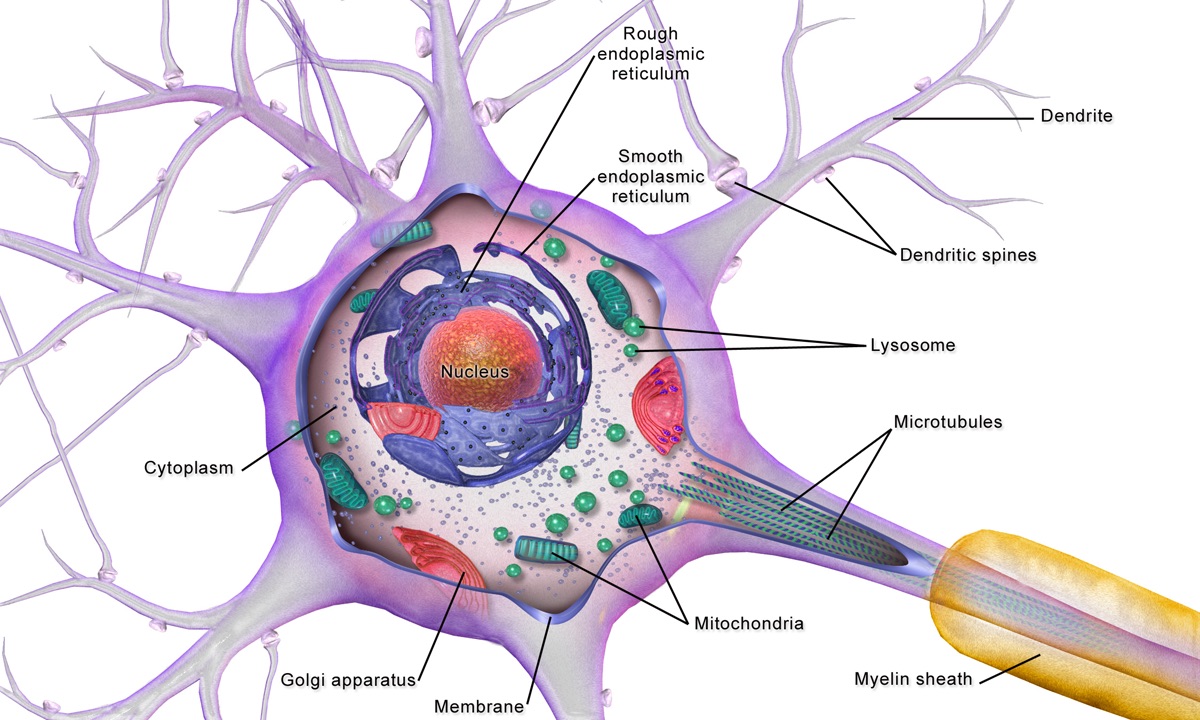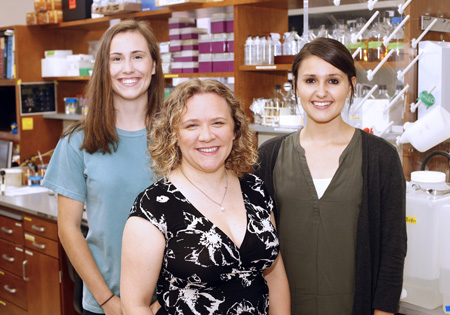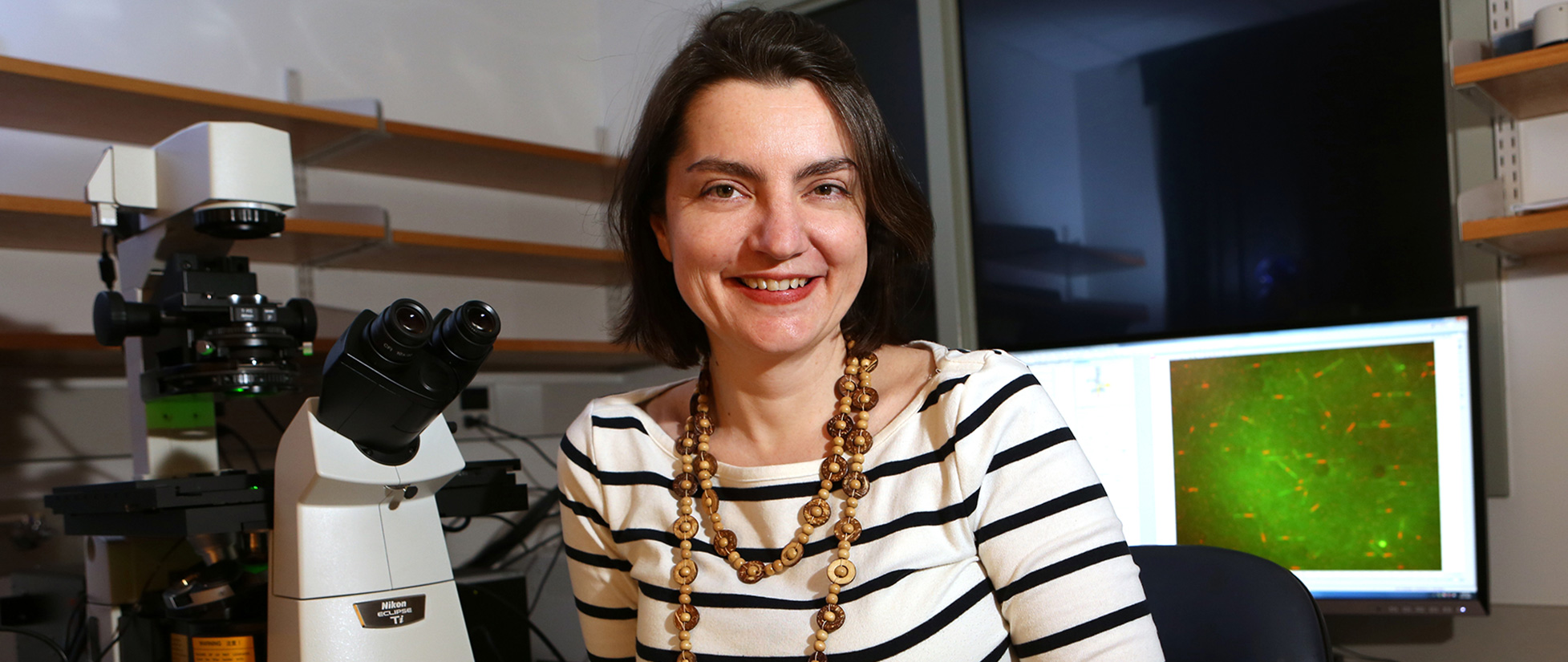Guest
-

Carrasco to lead Department of Molecular Physiology and Biophysics
Dr. Nancy Carrasco, a leading figure in the study of iodide transport and its critical role in the thyroid and mammary glands, has been named chair of Vanderbilt University’s Department of Molecular Physiology and Biophysics. Carrasco is expected to join the Vanderbilt faculty in spring 2019. She is currently the C.N.H. Read MoreAug. 22, 2018
-

Medicinal chemist discovering new leads for treating psychiatric diseases
Pedro García Barrantes had never heard of Vanderbilt University until he met Joshua Bruner, a graduate student in Craig Lindsley's lab at the Nashville institution. At a young chemists' conference in Brazil in 2011, "everyone else from the U.S. was complaining about their adviser except for Bruner," García Barrantes… Read MoreAug. 20, 2018
-

Control of Axon-Mediated Neuronal Degeneration
Control of Axon-Mediated Neuronal Degeneration Neuronal cell death by apoptosis plays an important role in development and the establishment of neural circuits. However, if not properly regulated, neuronal apoptosis can lead to serious neurodegenerative disease. Helping to maintain the critical balance between survival and death are the neurotrophins,… Read MoreAug. 10, 2018
-

Three student-adviser pairs recognized by HHMI
The Howard Hughes Medical Institute (HHMI) has awarded 2018 Gilliam Fellowships for Advanced Study to 45 doctoral student-adviser pairs from across the country. Three are from Vanderbilt University School of Medicine. All have demonstrated high promise to become leaders in their fields, says David Asai, HHMI’s senior director for science education. The… Read MoreAug. 9, 2018
-

Enzyme helps build motor that drives neuron death
A biochemistry instructor curious about an enzyme discovered in the damaged neurons of people with multiple sclerosis made a leap toward a potential cure for countless neurodegenerative ills. Vanderbilt University’s Amrita Pathak, working with Bruce D. Carter, biochemistry professor and associate director of the Vanderbilt Brain Institute, found that the enzyme… Read MoreAug. 6, 2018
-

Summer Science Academy inspires students, families
Since it began 16 years ago, the Vanderbilt Summer Science Academy (VSSA) has provided research experiences for roughly 2,000 undergraduates from colleges around the country. Nearly half are members of under-represented minority groups; many are the first in their families to pursue graduate or medical degrees. Hailing from diverse backgrounds,… Read MoreAug. 3, 2018
-

How asters form
Microtubule organization is essential for various biological processes ranging from cell division to intracellular transport. Microtubules are polymers of tubulin protein that assemble into two basic cellular architectures: bundles and asters. In contrast to bundle formation, the molecular mechanisms underlying aster formation are poorly understood. Marija Zanic, PhD, Ryoma Ohi, PhD, and their colleagues… Read MoreAug. 3, 2018
-

Genetic balancing act
The proteins that copy DNA are not perfect. Luckily, our cells can fix broken DNA via a process called homologous recombination repair, which involves proteins like RAD51. RAD51 helps protect DNA from being degraded by cell enzymes as it is copied. David Cortez, PhD, and colleagues reportedlast month in the journal Cell Reports that… Read MoreAug. 3, 2018
-

Repairs in the basement membrane
Basement membrane (BM) is an evolutionarily ancient sheet-like scaffold that wraps around most animal tissues. BM protects and provides mechanical stiffness to tissues and regulates development, function, and repair. But how it is repaired after being damaged is poorly understood. Now in a study published in the journal Matrix Biology, Andrea Page-McCaw, PhD, and colleagues have… Read MoreAug. 3, 2018
-

Three VU doctoral students receive 2018 Gilliam Fellowships for Advanced Study
The Howard Hughes Medical Institute has awarded 2018 Gilliam Fellowships for Advanced Study to three Vanderbilt University doctoral students and their advisers. The fellowship was created to ensure that a diverse and highly trained workforce is prepared to assume leadership roles in the sciences. The program approaches this by supporting promising… Read MoreAug. 2, 2018